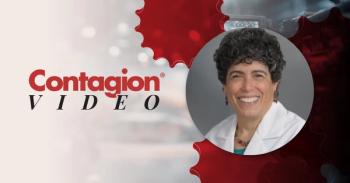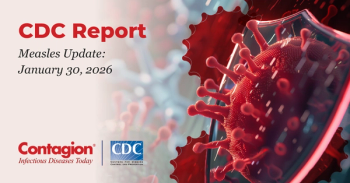
Janssen’s RSV Protein Vaccine Candidate Proves Safe and Effective in Older Adults
The candidate, Ad26.RSV.preF–RSV preF protein vaccine, was 80.0% effective against severe disease and 69.8% effective against any RSV acute respiratory infection.
This past season, there were almost unprecedented levels of severe, hospitalizing
A new study, published tonight in the New England Journal of Medicine, evaluated the efficacy, safety, and immunogenicity of Janssen’s RSV vaccine candidate. The recombinant, replication-incompetent, adenovirus serotype 26 vector vaccine encodes a conformation-stabilized RSVpreF protein (Ad26.RSV.preF) and recombinant RSV preF protein, with no adjuvant.
The investigators conducted a randomized, double-blind, placebo-controlled, proof-of-concept, phase 2b trial to evaluate the Janssen Ad26.RSV.preF–RSV preF protein vaccine.
Virus-neutralizing antibody and T-cell responses are vital for an RSV vaccine to provide robust protection against infection. In preclinical studies, Ad26.RSV.preF induced humoral and T-cell responses. Adding the RSV preF protein to Ad26.RSV.preF improved humoral responses while retaining cellular responses, providing superior protection. The prefusion conformation of the RSV preF protein is the most immunogenic RSV protein.
The phase 2b clinical trial included adults aged 65 years and older who were in good or stable health. The participants were randomly assigned 1:1 to either the Ad26.RSV.preF–RSV preF protein vaccine or placebo. A total of 5782 participants were enrolled and randomized.
The primary outcome was the first occurrence of RSV-mediated lower respiratory tract disease, which was defined by 3 or more symptoms of lower respiratory tract infection, 2 or more symptoms, or 1 or more symptoms plus at least 1 systemic symptom.
Of the 5782 participants who met inclusion criteria and underwent randomization, 207 discontinued the trial (107 in the vaccine group, 100 in the placebo group). Demographic characteristics were similar between the Ad26.RSV.preF–RSV preF protein vaccine recipients and the placebo group.
The average participant age was 71 years, with 73.6% of the participants between 65-74 years of age. Both study cohorts averaged 57.7% male and 92.5% White. 40.1% of participants had an increased risk of severe RSV disease at the time of randomization.
One dose of the vaccine candidate was found to elicit an immune response and prevent RSV-mediated lower respiratory tract disease. The Ad26.RSV.preF–RSV preF protein vaccine was 80.0% effective at preventing severe disease, and 69.8% effective at preventing any RSV acute respiratory infection.
“The vaccine was efficacious in subgroups defined according to age and risk level for severe RSV-mediated lower respiratory tract disease,” the study authors wrote.
Serious adverse events were reported in 4.6% (n = 132) of the vaccine recipients and 4.7% (n = 136) of the placebo recipients. None of the serious adverse events were deemed related to the vaccine or placebo.
The investigators noted that the large sample size and inclusion of participants at high risk of severe RSV strengthen this trial’s findings. Limitations of the trial include a shortened surveillance period during the RSV season and the enrollment of very few participants over the age of 85 years. Additionally, demographic groups, such as Black, Asian, and Hispanic populations, were underrepresented.
The Ad26.RSV.preF–RSV preF protein vaccine was efficacious against RSV-mediated lower respiratory tract disease and elicited humoral and cellular immune responses, all with a viable safety profile. The vaccine’s safety, efficacy, and immunogenicity were maintained across subgroups according to age and other risk factors.
With these positive results, Ad26.RSV.preF–RSV preF protein vaccine will continue to be evaluated in phase 3 trials.
Newsletter
Stay ahead of emerging infectious disease threats with expert insights and breaking research. Subscribe now to get updates delivered straight to your inbox.

































































































































